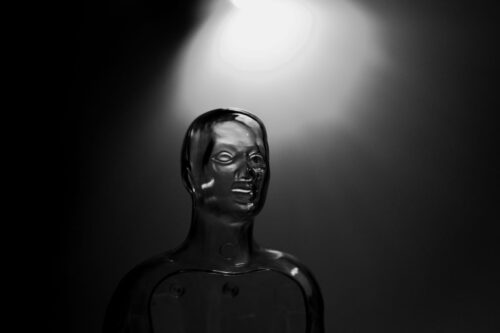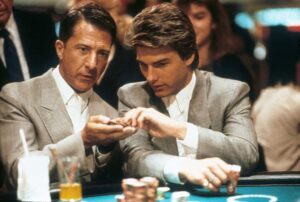Movies on Autism Need Reality Check from Media Stereotypes

One of the most common autism stereotypes that is perpetuated by shows or movies on autism is that people on the spectrum are all savants or geniuses. While some individuals with autism may have exceptional abilities in certain areas, such as music, math, or memory, this is not the case for everyone with this condition.
Most of us are pretty normal overall in terms of talents and intelligence. And that’s okay by us because it helps us with both awareness and acceptance overall.
Uncovering the Reality Behind Autism Media Stereotypes
Celebrities with ASD are also typically touted in the same overly-impressive way, and are often quick to say they have Asperger’s syndrome vs. autism. This is a good time to say that Asperger’s syndrome is no longer named or treated as a separate diagnosis, although it was until around 2013 or so. (I also was given the diagnosis of Asperger’s as well, although I was told at that time—which so happened to be 2013 as well—that it was now reclassified under autism spectrum disorder.)
To be fair, individuals older than mid-20s may have been given that diagnosis, and still prefer to use that description today. That is why folks like Elon Musk publicly stated when hosting Saturday Night Live in 2021 that he has Asperger’s syndrome vs. autism.
Learn more about:
- Autism vs Asperger’s Syndrome – What You Need to Know
- Autism Spectrum Facts – Good Reasons for Why It’s Called ASD
How to See Past Media’s Autistic Stereotypes with Shows About Autism
But back to the autism media stereotypes. The truth is many people with autism struggle with basic communication and social skills. Many also have difficulty with abstract thinking or understanding complex information. By portraying autism in movies or on television as a condition that is defined solely by exceptional abilities, the media reinforces the the wrong idea about individuals that pathologizes those with the disorder.
An example of movies on autism that feature those portrayals include Ben Affleck’s character, described as someone who has “high-functioning autism” in The Accountant, and most recently, the sequel The Accountant 2. In terms of shows about autism, who hasn’t heard or watched actor Freddie Highmore’s character, who is described as “an autistic savant doctor” on the TV show, The Good Doctor.
If you’ve watched either of these portrayals, you’ve seen how they promote how both characters are both super smart (genius) and extraordinarily hyper-focused. The Accountant series takes it a step further by weaving in an implausible institute for autistics, and a group of mostly children and teens residing there assists the character Justine (introduced in the first movie and who is a non-verbal autistic) with hacking, using a variety of illegal technologies to help find the bad guys.
Challenging Media Stereotypes About Autism
Another harmful stereotype that is often perpetuated by the media is that people with autism are tragic figures who are doomed to a life of isolation and loneliness. This ostracism belief is not only inaccurate but also damaging, as it reinforces negative autism stereotypes and perpetuates the idea that they are somehow less capable.
In reality, many people with autism lead fulfilling and meaningful lives, and are able to form close relationships with others.
Read more about Making a Connection – The Forgotten Joy of Finding Third Places
Autism in women is a relatively new topic, as medical experts originally thought the neurological disorder primarily only manifested itself in males. It is now known that women also experience autism, although they present their symptoms and behaviors differently. However, when is the last time you have watched a movie on autism with a female as the one with ASD? Exactly. In the meantime, learn more about autism in females here.
Perhaps the most damaging media stereotype about autism is that it is a disease or a disorder that needs to be cured. This myth is particularly harmful because it implies that people with autism are somehow broken or defective.
In reality, autism is a part of a person’s identity, and while it can present challenges, it can also be a source of unique strengths and abilities. Rather than focusing on a cure, the media should focus on acceptance and understanding of autism as a natural part of human diversity.
Reality Check: Reconciling Truth with Movies on Autism
An example of this is the 1988 movie, Rain Man, which starred Tom Cruise and Dustin Hoffman, who is again a savant autistic, but lives in an institution.
It perpetuated stereotypes of living in isolation but also Hoffman himself stated in a well-meaning way that he hoped to show love and empathy and release autism individuals from their shell, meaning they somehow could be cured. (Read more about Rain Man.)
Another issue with the media’s representation of ASD is the language that is frequently used to describe the disorder. Phrases like “suffering from autism” or “afflicted with autism” indicate to others that autism is a disease (which it isn’t) or a burden to others. Of course, those terms can be hurtful and stigmatizing. I don’t think of myself as “suffering from autism;” rather, I have autism.
Instead of focusing on challenges, behaviors, stigmas or deficits, we should emphasize strengths, talents, and abilities of people with autism. Remember, nobody wants to be defined by stereotypes or labels. That means we should all use language that supports that positivity by being respectful and inclusive.
A great role model portrayed in the media is Julia on Sesame Street, who was introduced in 2015. It’s a start, at least, of showing a female with neurodiversity.
From Clichés to Reality: Revealing the Truth of Autism
So, what can we do to promote a more accurate and inclusive understanding and acceptance of autism and get past the autism media stereotypes?
For starters, we should truly listen to what individuals with autism have to say about ASD as well as ask for perspectives from their friends and families. That way, we can create a more accurate portrayal of autism. We can also challenge any false autism media stereotypes and negative language used to describe autism. After all, does anyone want to be called “low functioning?”
Another important step is to embrace that autism is a part of human diversity, just like race, religion, gender, and sexuality. Society today is saying that we should celebrate and accept all differences.
And to be truly inclusive and accepting means we need to continue to champion practices and policies that support individuals with autism, and that includes education and employment as well as independence and healthcare.
Seeing Beyond Labels: The Power of Championing Autism

Another important aspect is to encourage early diagnosis and intervention for autism.
In my own experience with the media, autism is rarely ever shown in movies and shows so I never really gave autism media stereotypes much thought when I was younger.
As an adult, however, I have noticed that in the handful of movies that do show autism it’s always labels.
Typically, the script seems to go like this: The character with autism is savant, so is really good at one thing but has terrible social skills or huge anxiety. There was even one movie that said autism the next step of human evolution! Like it’s just a science fiction concept.
Bust the Myth: Autism Doesn’t Equal Poor Social Skills
These portrayals are just so ridiculous that it’s no surprise everyone—autism or not—are sick of these tired plots, so if you have autism you’re probably annoyed and sick of Hollywood’s nonsense too. (Hey, Hollywood—if you ever want someone to look over scripts from an autism point of view, I’m available, so hit me up by sending me an email to connor@myautismmind.com!)
These inaccuracies are why we need better representation so people will actually understand autism and not believe all these absurd autism media stereotypes. If we can do this, then we have accomplished the creation of a more positive understanding for everyone.
Debunking Dangerous Autism Stereotypes
To wrap this up, media’s representation of autism plays a crucial role in shaping public perception and understanding of the condition. It is so very important that we challenge harmful stereotypes and myths and promote a more accurate and inclusive understanding of autism.
And that means celebrating our strengths and abilities and not defining us by things that we may not do as well as someone else. We may not all be geniuses or savant (and of course we’re not), but we ARE all human beings!
Additional Misconceptions That Lead To Autism Stigmas and Stereotypes
Learn more about other stigmas and stereotypes that autistics face:
- Why Labeling People Can Lead to Stereotyping and Discrimination
- Beyond Stereotypes: How Rain Man Revolutionized the Perception of Autism
- Absurd Plot About Autism and Evolution and Why It’s Harmful
- Moving Past the Tired Conspiracy Theory of Vaccines and Autism
- Discover the Powerful Bond Between Autism and Pets
- 3 Reasons Why Pathologizing Crushes Autism Acceptance and Inclusion
- The Hidden Hurdles: Challenging Autism Stigmas in Today’s Politics
- History of Autism: Revealing Shocking Mysteries from the Past
- Knocking Down the Stigma to Autism Obsession
